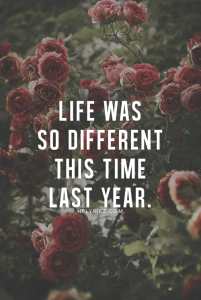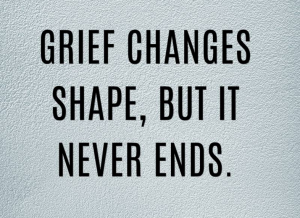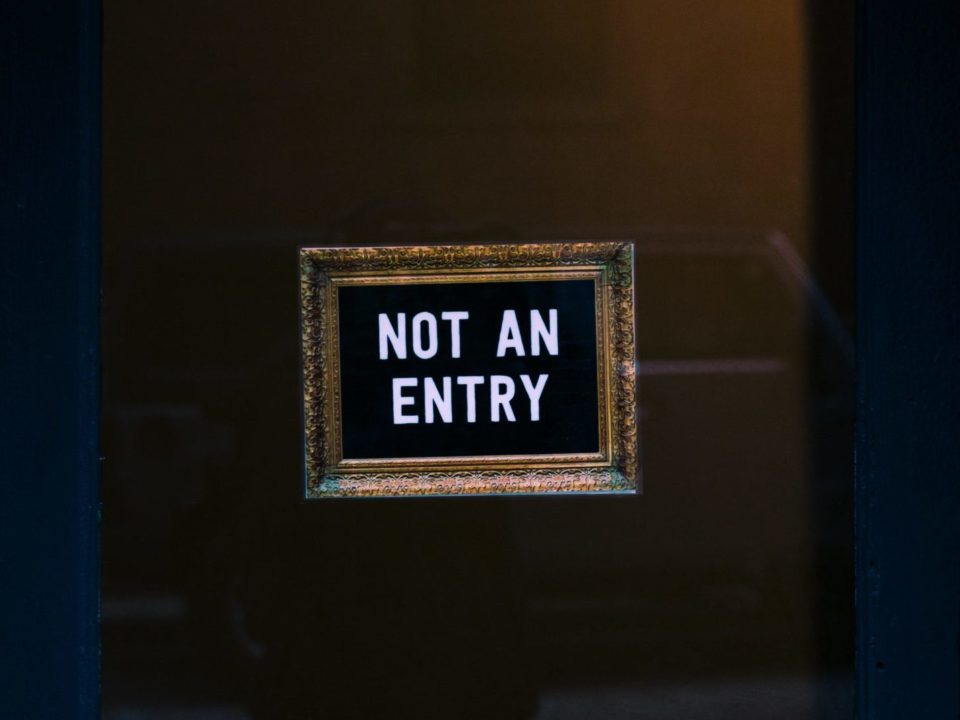How Long Does Grief Last? The Surprising Answer
We all want to know how long something terrible is going to last, knowing gives us a sense of control over the unknown and comforts us with the confident knowledge of an end.
But grief is very different. We know that a trip to the DMV or a root canal at the dentist will end, but grief, grief exists because of an end … an end we never, ever wanted to know about.
Ever since I heard Dr. Bill Hoy, a few years ago, talk about the portrayal of bereavement on television I’ve started paying attention to how long it is that characters in the show is permitted to grieve. As Dr. Hoy likes to point out, their grief is more than likely all wrapped up and over with by the next episode, if it hasn’t already concluded in the 45 minutes.
The time-frames we see modeled and represented for grief are generally out-of-focus for several reasons, 1. We really wish it was that easy and quick, and 2. People aren’t very comfortable with grief that seems to last a while – they might even start to think that something is wrong with someone who continues to grieve.
If you Google “how long does grief last?” the top answer reads:
6-8 weeks!? Does that seem very, very, shall we say, “optimistic” to anyone? Of course, different relationships bear more significance to us than others and our grief will vary accordingly. But to generalize all of grief and reduce it to “feeling better in 6-8 weeks” is honestly a shocking and irresponsible description of what grief is for so many.
 I read recently about the breakdown of grief in the first 2 years. The author said that in the first year the mourner is feeling the presence of their loved one as they tread through the days. It is a year of firsts, of seeming anomalies, a year of “making it through.” The second year, she said, is very different. It is harder. It’s the year that the mourner truly begins to feel the gaping loss as the reality of the “seconds” start to sink in. The first Christmas was survived, but it was just one, now there is a second Christmas, and after that stretches an interminable amount of holidays and birthdays and summers and cold nights without that person. The second year, very often, is when the loss starts to become final.
I read recently about the breakdown of grief in the first 2 years. The author said that in the first year the mourner is feeling the presence of their loved one as they tread through the days. It is a year of firsts, of seeming anomalies, a year of “making it through.” The second year, she said, is very different. It is harder. It’s the year that the mourner truly begins to feel the gaping loss as the reality of the “seconds” start to sink in. The first Christmas was survived, but it was just one, now there is a second Christmas, and after that stretches an interminable amount of holidays and birthdays and summers and cold nights without that person. The second year, very often, is when the loss starts to become final.
While these are not hard and fast rules for grief (because no such rules exist) I think having this awareness helps to dispel a sense of “doing grief wrong” or inadequacy when you may still harbor feelings of sorrow when others appear not to.
While all of us have our own way of handling complex emotions like these, some being more resilient and some needing a little extra time, none of us are prepared for what grief brings to us and we never know how long it will last.
 And really, the truth is, it never “goes away,” we heal here and there, we adjust, and learn to live without, but we will always grieve those who made our lives joyful and bright.
And really, the truth is, it never “goes away,” we heal here and there, we adjust, and learn to live without, but we will always grieve those who made our lives joyful and bright.
I think because of how special and precious these people were in our lives, that in some way we never want to stop missing them. We find we weren’t looking for an end after all, we will just always be looking for them.






2 Comments
Molly, Thank you for another inspiring blog! I found myself pondering my own grief and so much of the description of years one and two really rang true for me. My favorite part is your very last two sentences! I think it sums it up beautifully.
Becky
Molly – This is a great lesson for all of us to mindful about. I still find my self thinking about my friends and family members who died years ago. I hope my memory always helps me remember my friends and family who have gone before us. Great job, my friend!